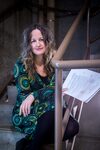What can be learned from “the Germans”? What have "the Germans" yet to learn?
For many countries, the “German model” of coming to terms with the past has long been considered exemplary with regard to the Holocaust. Many saw that the “Vergangenheitsbewältigung” could serve as a model for other “difficult histories”. Yet in the recent years, this model’s character has come under scrutiny: The debate around the Humboldt Forum showed that Germany has widely ignored other dark chapters in its history, such as its colonial past. Furthermore, it triggered the question of how to place the different histories of violence into relation with one another and whether, as Michael Rothberg puts it, memories of atrocity must stand in hierarchical relationship to one another. The rise of populism in Germany has led to a renaissance of allegedly overcome narratives that want to avoid “difficult chapters” completely and focus on other, more “glorious” moments of the past instead.
So, where does this leave us? Can German efforts to atone for Nazi atrocities still serve as a model for how other countries might come to terms with their own legacies? To what extent is the old model of “Vergangenheitsbewältigung” still relevant in a post-migrant societies? What other “histories” need to be written? How can we steer away from competitive models of history writing? And what tools do we have to deal with populist or even extremist criticism of contemporary forms of dealing with the past?
This round table brings together four leading experts from Germany, the US and the UK to discuss these pressing questions of our time: Corinne Fowler, Susan Neiman, Michael Rothberg and Mark Terkessidis. BBC Radio 4‘s Samira Ahmed will moderate the session.
In cooperation with the German Historical Institute London. More information about their Summer Lecture Series 2021 can be found
here.
Speakers:
 © Osbourne Photography
Professor Corinne Fowler directs a public history project called Colonial Countryside: National Trust Houses Reinterpreted. Corinne co-edited the National Trust report on its properties’ connections to colonialism and historic slavery. She is author of Green Unpleasant Land: Creative Responses to Rural Britain’s Colonial Countryside (Peepal Tree Press: 2020).
© Osbourne Photography
Professor Corinne Fowler directs a public history project called Colonial Countryside: National Trust Houses Reinterpreted. Corinne co-edited the National Trust report on its properties’ connections to colonialism and historic slavery. She is author of Green Unpleasant Land: Creative Responses to Rural Britain’s Colonial Countryside (Peepal Tree Press: 2020).
 © Bettina Volke
Susan Neiman is Director of the Einstein Forum. Born in Atlanta, Georgia, Neiman studied philosophy at Harvard and the Freie Universität Berlin, and was professor of philosophy at Yale and Tel Aviv University. She is the author of Slow Fire: Jewish Notes from Berlin, The Unity of Reason: Rereading Kant, Evil in Modern Thought, Fremde sehen anders, Moral Clarity: A Guide for Grown-up Idealists, Why Grow Up?, Widerstand der Vernunft. Ein Manifest in postfaktischen Zeiten and Learning from the Germans: Race and the Memory of Evil. She is the mother of three grown children and lives in Berlin, Germany.
© Bettina Volke
Susan Neiman is Director of the Einstein Forum. Born in Atlanta, Georgia, Neiman studied philosophy at Harvard and the Freie Universität Berlin, and was professor of philosophy at Yale and Tel Aviv University. She is the author of Slow Fire: Jewish Notes from Berlin, The Unity of Reason: Rereading Kant, Evil in Modern Thought, Fremde sehen anders, Moral Clarity: A Guide for Grown-up Idealists, Why Grow Up?, Widerstand der Vernunft. Ein Manifest in postfaktischen Zeiten and Learning from the Germans: Race and the Memory of Evil. She is the mother of three grown children and lives in Berlin, Germany.
 © David Wu, UCLA Alan D. Leve Center for Jewish Studies
Michael Rothberg is the 1939 Society Samuel Goetz Chair in Holocaust Studies and Professor of English and Comparative Literature at the University of California, Los Angeles. His latest book is The Implicated Subject: Beyond Victims and Perpetrators (2019), published by Stanford University Press in their “Cultural Memory in the Present” series. Previous books include Multidirectional Memory: Remembering the Holocaust in the Age of Decolonization (2009), Traumatic Realism: The Demands of Holocaust Representation (2000), and, co-edited with Neil Levi, The Holocaust: Theoretical Readings (2003). With Yasemin Yildiz, he is currently completing Inheritance Trouble: Migrant Archives of Holocaust Remembrance for Fordham University Press.
© David Wu, UCLA Alan D. Leve Center for Jewish Studies
Michael Rothberg is the 1939 Society Samuel Goetz Chair in Holocaust Studies and Professor of English and Comparative Literature at the University of California, Los Angeles. His latest book is The Implicated Subject: Beyond Victims and Perpetrators (2019), published by Stanford University Press in their “Cultural Memory in the Present” series. Previous books include Multidirectional Memory: Remembering the Holocaust in the Age of Decolonization (2009), Traumatic Realism: The Demands of Holocaust Representation (2000), and, co-edited with Neil Levi, The Holocaust: Theoretical Readings (2003). With Yasemin Yildiz, he is currently completing Inheritance Trouble: Migrant Archives of Holocaust Remembrance for Fordham University Press.
 © Andreas Langen
Mark Terkessidis is a freelance writer and works on the topics of (popular) culture, migration, racism and social change. He studied psychology in Cologne and earned his doctorate in education in Mainz. He was editor of the magazine "Spex" and presenter for WDR "Funkhaus Europa". His book publications include "Interkultur" (2010), "Kollaboration (2015, by edition Suhrkamp), "Nach der Flucht. New Proposals for the Immigration Society" (2017, Reclam) and "Wessen Erinnerung zählt. Koloniale Vergangenheit und Rassismus heute" (2019, Hoffmann & Campe).
© Andreas Langen
Mark Terkessidis is a freelance writer and works on the topics of (popular) culture, migration, racism and social change. He studied psychology in Cologne and earned his doctorate in education in Mainz. He was editor of the magazine "Spex" and presenter for WDR "Funkhaus Europa". His book publications include "Interkultur" (2010), "Kollaboration (2015, by edition Suhrkamp), "Nach der Flucht. New Proposals for the Immigration Society" (2017, Reclam) and "Wessen Erinnerung zählt. Koloniale Vergangenheit und Rassismus heute" (2019, Hoffmann & Campe).
Moderation:
 © Foreign and Commonwealth Office
Award winning journalist and broadcaster Samira Ahmed presents Front Row on Radio 4, Newswatch on BBC1 and the Intelligence Squared podcast How I Found My Voice. She won the British Broadcasting Press Guild Audio Presenter of the Year award in 2020. Samira's acclaimed BBC4 series Art of Persia was the first major documentary series to be filmed in Iran for 40 years. Samira won the Stonewall Broadcast of the Year award while a presenter at Channel 4 News. She has been a BBC News Correspondent, a reporter on Newsnight, a news anchor for World Service TV and Deutsche Welle TV.
© Foreign and Commonwealth Office
Award winning journalist and broadcaster Samira Ahmed presents Front Row on Radio 4, Newswatch on BBC1 and the Intelligence Squared podcast How I Found My Voice. She won the British Broadcasting Press Guild Audio Presenter of the Year award in 2020. Samira's acclaimed BBC4 series Art of Persia was the first major documentary series to be filmed in Iran for 40 years. Samira won the Stonewall Broadcast of the Year award while a presenter at Channel 4 News. She has been a BBC News Correspondent, a reporter on Newsnight, a news anchor for World Service TV and Deutsche Welle TV.
Book Tickets Through Eventbrite
Back